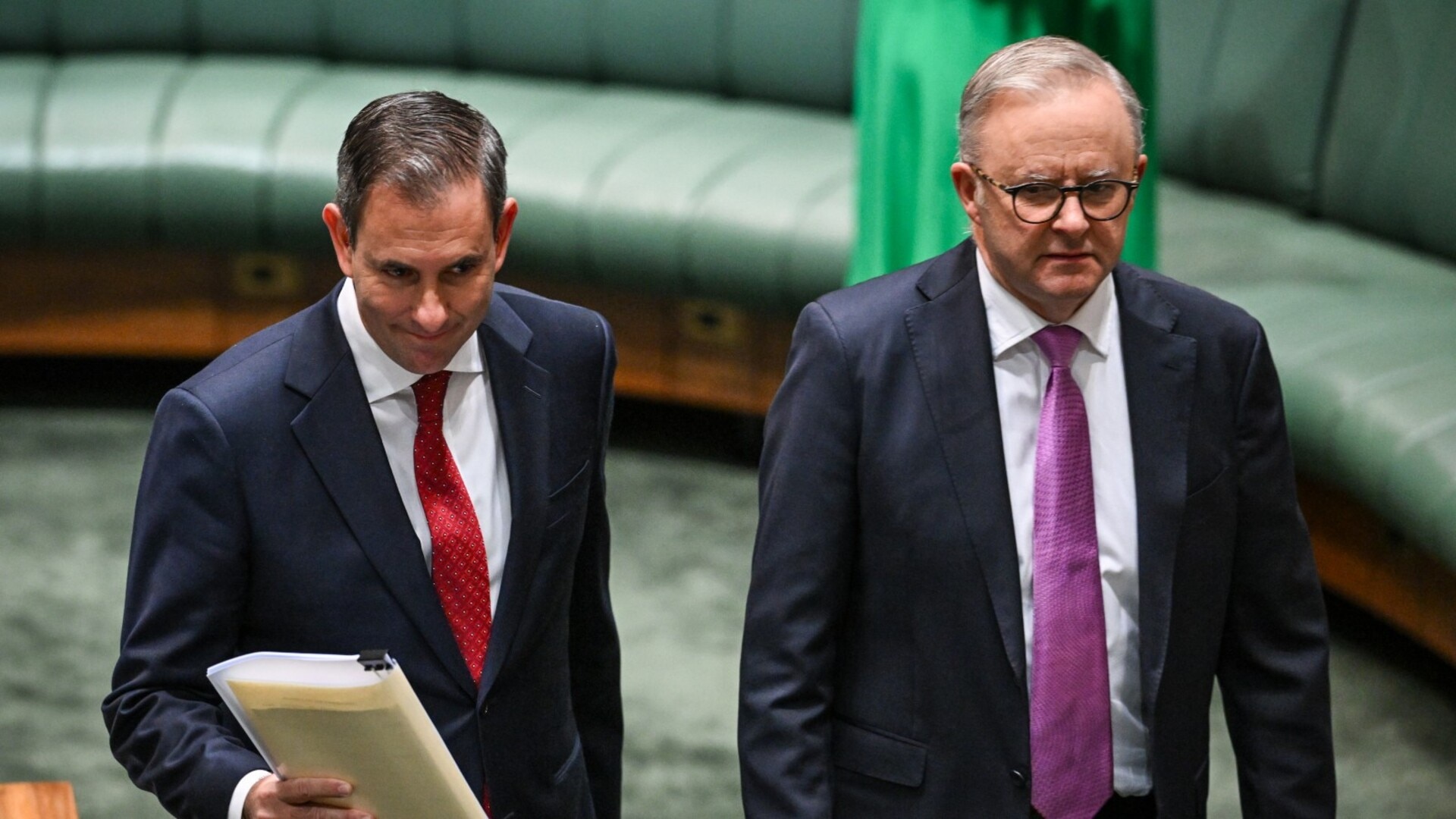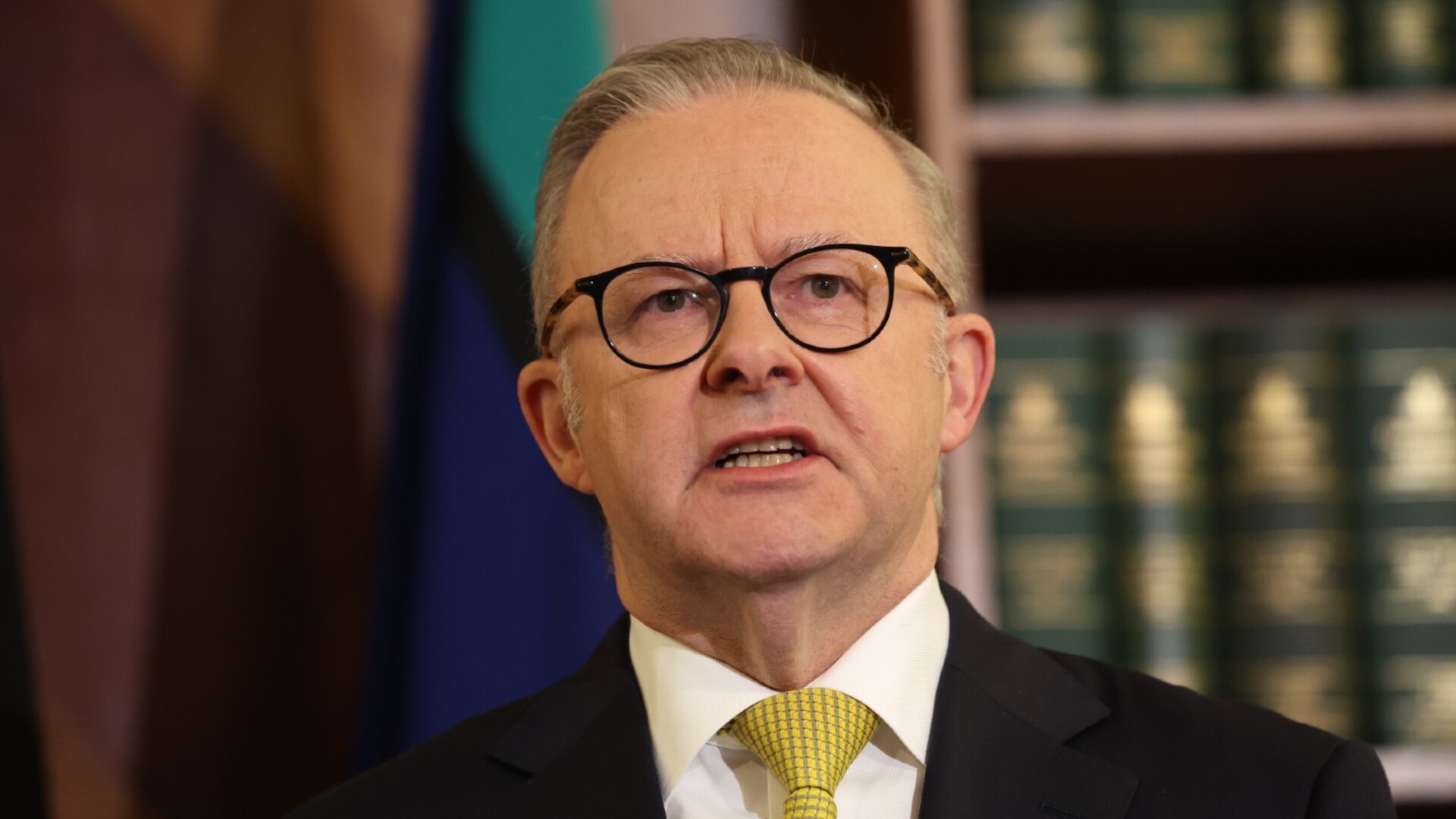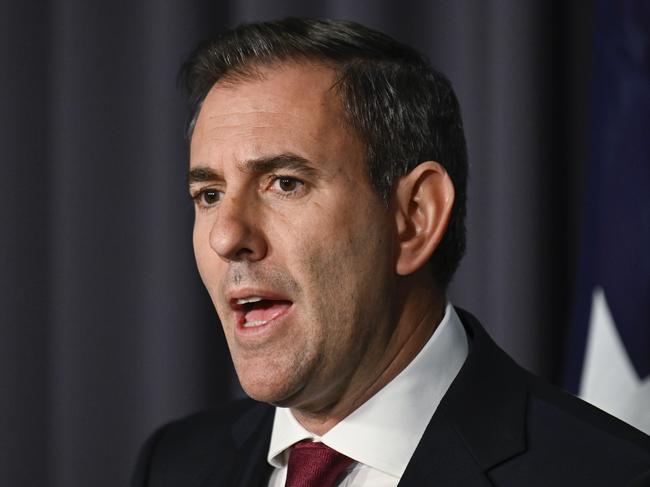‘Stop lying’: Treasurer insists that PM will cop super tax slug
Treasurer Jim Chalmers has slammed reports that Anthony Albanese will escape the consequences one of his more controversial proposals.

Treasurer Jim Chalmers has slammed reports that Anthony Albanese will escape Labor’s proposed tax hike on superannuation accounts worth $3 million or more, urging critics to “stop lying”.
Labor’s long-standing plan to tax multi-millionaires more on their super is designed to hit those with more than $3 million in their superannuation accounts.
Having taken the policy to the federal election, the Albanese Government is now claiming an electoral mandate for the change but will need Senate support from the Greens or the Coalition to pass the change.
The new tax will double the 15 per cent that all super fund members are currently taxed on their earnings but only for balances over $3 million.
Because super is usually taxed at less than regular income, for example a wage or salary, it’s an attractive way to accumulate wealth at lower rates of tax than investors otherwise could.
For example, it allows wealthy Australians – most of whom have $6 million or more in super – to pile up property and other assets in their super funds far beyond what they need for retirement.

What the super tax discounts costs the budget
The super tax discounts cost the federal budget an estimated $50 billion in lost revenue each year allowing the rich to slash their tax bills.
To rein in the tax breaks for the wealthy, Labor proposes a 30 per cent tax rate instead of 15 per cent on the earnings of those whose super balances are above $3 million.
This rate would only apply to the proportion of earnings that are above $3 million, that is it would still not apply to the first $3 million in super.
For example, a couple with $6 million in super will pay extra tax on $3 million of their super but not on $6 million.
Failure to index $3 million
But critics argue that the proposed super tax is problematic for two main reasons.
First, it taxes unrealised gains, that means gains before the asset is sold.
Secondly the $3 million threshold is not indexed.
The failure to index the tax means that over time, for example 30 or 40 years, it could capture normal workers with higher taxes on their super.
How it will impact the Prime Minister
The third concern critics have raised is that for a small group of politicians who entered Parliament before 2004.
This group includes the Prime Minister and former Opposition leader Peter Dutton.
They won’t be taxed on unrealised gains in the same way but only when they actually retire.
The reason for that is that politicians including former MP Peter Dutton and the Prime Minister are in what is known as a “defined benefit” retirement plan where they receive a fixed amount each year, rather than the “defined contribution” retirement fund most people have in Australia.
In other words, for most workers retirement income depends on how much they have contributed but under the old super scheme that’s not how it works.
Because defined benefits programs do not have “earnings” in the same way as regular super funds, it is not straightforward to calculate the new tax.
That’s the reason why they are being treated differently in the legislation.

Treasurer grilled on impact to PM’s super
“Can you confirm that the tax on $3 million superannuation funds will only apply to the Prime Minister once he leaves office, that he won’t pay any extra tax on his superannuation until he leaves office under your legislative proposal?,” Sky News reporter Reuben Spargo asked.
“I’m so pleased you asked me this question, because people have been lying about this,” Mr Chalmers replied.
“We’ve had people, I think shamefully, say that the Prime Minister or other senior politicians at the federal level, on defined benefits, are somehow exempt from this change.
“They are not. We made that clear, that they are included in the legislation we released in November 2023, and in the regulations we released, I think, in March of 2024 more than a year ago.
“It’s been abundantly clear in black and white that the Prime Minister is included here, and people should stop lying about it. Now.
“To the substance of your question, which I do understand, you’re making a more specific point about the calculation.
“We’ve been clear about how defined benefits would be treated since we announced the policy, just as the previous government did with their changes to super
“We apply commensurate treatment to defined benefit interests to ensure that there are equivalent tax outcomes and the same rules apply to everyone on defined benefit schemes without the constitutional exemption, including federal politicians.”
However, Mr Chalmers went on to confirm that some politicians would be treated differently.

“Now when it comes to the deferred liability, which is a very specific kernel of your question, these deferred liabilities on defined benefits are consistent with the long standing approach taken in other areas of super, like the extra contributions tax for high income earners, tax liabilities are deferred until phase because members in those schemes can’t access their super to pay tax debts until that point,” he said.
“It’s a function of necessity that that’s how that calculation is made, but we charge an interest rate on those liabilities to make sure that people don’t receive an inappropriate advantage from the necessity of calculating and paying those liabilities on retirement.
“And so you have to be very careful with what some people, including, I think, some of the lower echelons of our political opponents, some of the things that they’ve said, and unfortunately, some of those things which have been reported as fact, have to be very careful here the fine benefits schemes like the Prime Ministers are in. They’ve been in all along.
“The calculation reflects the same sorts of ways it’s been calculated in the past. And because the liability is paid on retirement as an interest rate applied to it to make sure that there’s no inappropriate benefit, and I genuinely really appreciate the opportunity to clear all of that up because too much has been written about that which has been wrong.”
Greens leader Larissa Waters weighs in
In order to pass the legislation in the Senate, the Labor Party will need to seek the support of the Coalition or the Greens.
Greens leader Larissa Waters told news.com.au it wasn’t a “good look” for some politicians to be treated differently.
“It’s not so much for the PM specifically, but a carve out for politicians crafted by politicians, it looks like self interest,‘’ she said.
“It’s not a good look.”
“Look, there’s a lot of banding about with the sense of mandate. They’ll propose what they propose, we’ll consider it.
“We’ll try to make it better.”
Originally published as ‘Stop lying’: Treasurer insists that PM will cop super tax slug



